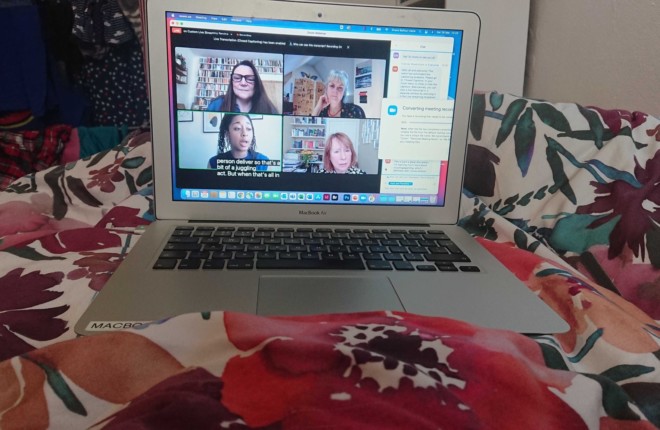
On CVs
Posted on July 2, 2018 in Scotland
Writing CVs and cover letters can be a daunting experience. It’s an exercise in summing up your best and most applicable qualities to the potential employer, in both a professional and creative manner. I look at CVs for intern applicants who are looking to gain experience in publicity and marketing. Because of the size of our organisation, and the number of applicants received this is at the best of times a very difficult decision – so what can you do to stand out from the crowd?
Use the correct company name
This feels like a basic thing – but it is exceptionally important that you get the publisher’s name correct: I’ve had ‘Cannongate’ ‘Canon Gate’ and ‘Connongate’ before – it seems like a simple thing, but the simplest things are sometimes where we’re most lax in proofing – so always double check the company and imprint name is correct.
Correctly address the cover letter
Follow the job ad to the letter – normally an ad will tell you specifically who to address the covering letter to. If someone is named in the job ad online then submitting a cover letter with Dear Sir/Madam is a quick indicator to the recruiter that you haven’t read their ad closely. Also – copy their name exactly as the ad says, don’t shorten Christopher to Chris, Jennifer to Jen, etc.
Keep it short
Two pages should be enough for a CV, one page for the cover letter – you need to show you can write clear and persuasive copy, sticking to the most important details. Rambling and/or extraneous information gives more room for errors to creep in, and the CV does not feel as refined as a result.
Use bullet points
Bullet points can quickly articulate your experience on a CV, in a clean and crisp manner. Especially for your education section:
• Degree (Grade)
• Advanced Highers (including Math/English)
• Highers (including Math/English)
Look for their house style, and use it in your letter and CV
Read the publisher’s ‘about us’ copy to get an understanding of how their style works – do they use em dashes or en dashes? How do they write dates – 1st Jan 2018? 01 Jan 18?, do they use single quote marks or double? Do they italicize book titles or use quote marks? Bonus points for applicants if you can identify their house font.
Keep the formatting simple
No large headers, weird margins or multiplying fonts. Keep it crisp and professional. Some applicants use a photo of themselves on the cover letter, while not necessarily a bad thing there’s arguments for this either way, because while it humanises you to the recruiter, it also occupies vital space on the page.
Remove repetition
I’ve had applicants state they are ‘excellent communicators, with excellent people skills’ – don’t be this person, make sure you are picking the right term for each skill. Don’t go crazy with a thesaurus (voracious readers) but do make sure you diversify.
Know their list
Don’t say you’re a ‘voracious’ ‘ravenous’ reader, or that you ‘devour’ books ‘passionately’ – this is what everyone says, it’s boring and easy to spot a mile away. Talk about your favourite books on the publisher’s list. Show them why you want to work for them, don’t tell them you hunger for books, give them concrete examples. Show them why you care, who you are and some of your personality in the cover letter!
Keep it relevant
It’s great to see a bit on other hobbies, interests and merits – but only if you bring them back to how they relate to publishing. Did you act in a university theatre troupe? Good public speaker. Handled finances for a local sports club? Good eye for detail. Longtime musician? Passion and dedication which you could bring to a role.
Ask for help
Send the CV and cover letter to a trusted friend or family member, have them proofread it and then proofread it again. It’ll never hurt, and a fresh set of eyes can catch things you may have missed. Double check your contact details! A typo here means they can’t get in touch with you, send a test email and test text to the numbers, even if it seems silly.
Don’t apply for the post multiple times
The recruiter will see this, and it won’t go in your favour. But do follow up and ask if they’re in a position to offer feedback if you don’t get called to an interview / get the position. Take the initiative to learn from this application, and go on stronger to the next role you apply for.



 Listen to the podcast
Listen to the podcast  Explore the Youtube channel
Explore the Youtube channel